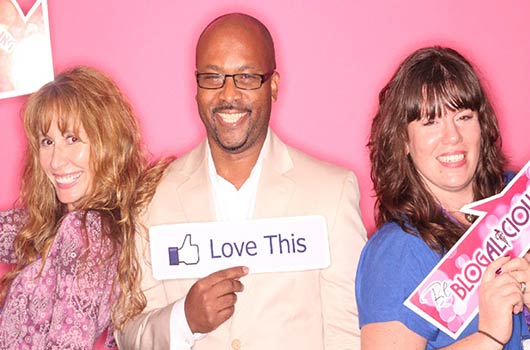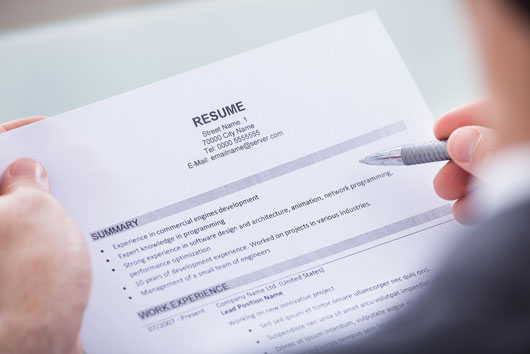
I recently read an article about the rise of micro-entrepreneurs—self-employed and/or small business owners who capitalize on their own specific skill set or assets, often in some creative field. Their start-up costs and overhead are low, mostly thanks to digital technology that allows them to run their businesses over the Internet. In the U.S. alone, 14 out of every 100 workers is a micro-entrepreneur. And even if their small business or endeavor is not a full-time job, anyone who rents out their vacation home, has a dog-walking business or regularly sells items on eBay is a micro-entrepreneur.
or assets, often in some creative field. Their start-up costs and overhead are low, mostly thanks to digital technology that allows them to run their businesses over the Internet. In the U.S. alone, 14 out of every 100 workers is a micro-entrepreneur. And even if their small business or endeavor is not a full-time job, anyone who rents out their vacation home, has a dog-walking business or regularly sells items on eBay is a micro-entrepreneur.
It took me a while to realize that I, too, am a micro-entrepreneur, as are most of my friends and colleagues. I’ve been a freelance writer and editor for more than 10 years, and I just launched my latest effort, an editing service for bloggers, for the cost of an $18 domain name and several hours spent setting
and editor for more than 10 years, and I just launched my latest effort, an editing service for bloggers, for the cost of an $18 domain name and several hours spent setting up a simple website. My friend Barbara Gillespie, a graphic artist, sells t-shirts, coffee mugs and mouse-pads through her e-commerce site, Flopsock. Another friend, Roni Fields, is a freelance makeup artist and film and photo stylist in Las Vegas. Mamiverse contributor Laura Fuentes runs Momables, offering low-cost, healthy school lunch menus for busy moms (and dads) to make for their kids.
up a simple website. My friend Barbara Gillespie, a graphic artist, sells t-shirts, coffee mugs and mouse-pads through her e-commerce site, Flopsock. Another friend, Roni Fields, is a freelance makeup artist and film and photo stylist in Las Vegas. Mamiverse contributor Laura Fuentes runs Momables, offering low-cost, healthy school lunch menus for busy moms (and dads) to make for their kids.
We and countless other micro-entrepreneurs have a few things in common. We’ve by and large rejected the “employee” track, where our jobs and livelihoods are subject to the whims of the economy, corporate restructuring and changes in management. (I was the victim of “management reorganization” at my last full-time job, which ended in 1999. Never again.) Now, we swallow the risk on our own, win, lose or draw. But the difference is, as micro-entrepreneurs with low overhead—most of us work from home offices—and little monetary investment in our businesses, our risks are lower (than say, getting fired from a high-paying job on which we are totally dependent) and the potential for rewards much, much higher.
offices—and little monetary investment in our businesses, our risks are lower (than say, getting fired from a high-paying job on which we are totally dependent) and the potential for rewards much, much higher.
Read Related: Yes, I Work From Home, But I’m a Professional!
According to Fast Company, the online magazine for progressive business, the appeal of micro-entrepreneurship isn’t just the avoidance of the corporate axe. Using talents or assets as a base for business allows micro-entrepreneurs to:
- Follow their hearts by working in fields they love.
- Have the flexibility to work from home
 , take care of their kids, and get to the gym for that 3pm Pilates class without having to clock out.
, take care of their kids, and get to the gym for that 3pm Pilates class without having to clock out.
- Keep their minds and lives enriched by learning new skills, making new contacts and forging new partnerships. (For example, I just learned SEO Search Engine Optimization
 ] writing for the Internet this year—a year ago I’d never heard of the term.)
] writing for the Internet this year—a year ago I’d never heard of the term.)
- Be creative by directing their own businesses, using their own creative skills and ideas, and not having to follow a corporate mold.
- MAKE MONEY
 There’s nothing wrong with that!
There’s nothing wrong with that!
When colleague and fellow micro-entrepreneur Lorraine C. Ladish first urged me to start blogging and learn SEO, she told me, “The Internet is where the jobs are.” For us creative types, it’s the absolute truth. And to that, I add that entrepreneurship, and particularly micro-entrepreneurship, is the where the jobs are too—jobs that we create and control ourselves.
As I sit at my desk in my home office in Central Italy, I am in touch with writers, bloggers, editors and designers in New York, Miami, San Francisco, Spain, Argentina, England and Australia. I’ll likely partner on some marketing with a niece who lives in Vermont, and I’m talking to a cousin in Baltimore about another home-based business idea. We are all taking our career destinies into our own hands, and rejecting the notion that work must be all about duty and drudgery. I, for one, haven’t dreaded a Monday morning since I got fired from my last full-time job.
in Central Italy, I am in touch with writers, bloggers, editors and designers in New York, Miami, San Francisco, Spain, Argentina, England and Australia. I’ll likely partner on some marketing with a niece who lives in Vermont, and I’m talking to a cousin in Baltimore about another home-based business idea. We are all taking our career destinies into our own hands, and rejecting the notion that work must be all about duty and drudgery. I, for one, haven’t dreaded a Monday morning since I got fired from my last full-time job.
My friends are helping me market my new endeavor with Facebook, Google+ and Twitter, among others, as I help them market their enterprises. I have three or four solid ideas for other micro-businesses, all of which involve the efforts of the network of creative people—all friends and colleagues—that I’ve amassed over the years. Little did we know how the economy and our perspectives would change, and we’d all one day help one another to prosper through creative partnerships.
I don’t know that any of us will get rich as micro-entrepreneurs, but I hope we all do. But even if we just earn enough to supplement other income, cover the mortgage payment or take a nice vacation every year, I do know that there is a certain unmatchable joy and satisfaction that the money we earn comes from our talents, creativity, entrepreneurship and vision.









